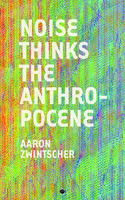Noise Thinks the Anthropocene: An Experiment in Noise Poetics
Author(s)
Zwintscher, Aaron
Collection
ScholarLedLanguage
EnglishAbstract
In an increasingly technologized and connected world, it seems as if noise must be increasing. Noise, however, is a complicated term with a complicated history. Noise can be traced through structures of power, theories of knowledge, communication, and scientific practice, as well as through questions of art, sound, and music. Thus, rather than assume that it must be increasing, this work has focused on better understanding the various ways that noise is defined, what that noise can do, and how we can use noise as a strategically political tactic. Noise Thinks the Anthropocene is a textual experiment in noise poetics that uses the growing body of research into noise as source material. It is an experiment in that it results from indeterminate means, alternative grammar, and experimental thinking. The outcome was not predetermined. It uses noise to explain, elucidate, and evoke (akin to other poetic forms) within the textual milieu in a manner that seeks to be less determinate and more improvisational than conventional writing. Noise Thinks the Anthropocene argues that noise poetics is a necessary form for addressing political inequality, coexistence with the (nonhuman) other, the ecological crisis, and sustainability because it approaches these issues as a system of interconnected fragments and excesses and thus has the potential to reach or envision solutions in novel ways.
Keywords
anthropocene; noise; ecological studies; sound studies; poetics; sustainability studiesDOI
10.21983/P3.0244.1.00ISBN
9781950192069, 9781950192052OCN
1100491551Publisher
punctum booksPublisher website
https://punctumbooks.com/Publication date and place
Brooklyn, NY, 2019Classification
Theory of music and musicology


 Download
Download